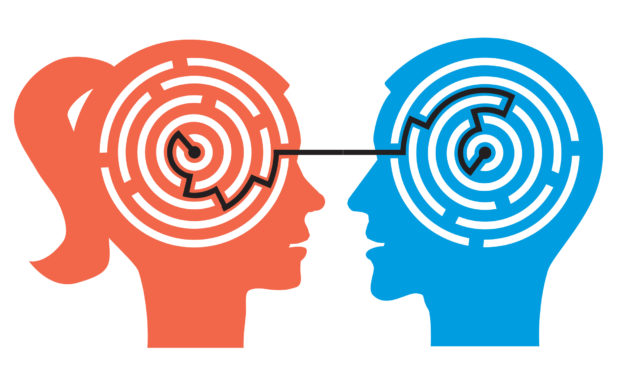When I was a kid my mom would always get on my case.
I’d go to my friends, we’d get into all kinds of trouble, have a lot of fun, etc.
Then my mom would ask me what we’d done, conversationally, and I’d say, “nothing.”
Or when we had something really BIG planned, she’d ask me what I was doing that weekend.
And I’d say, “Nothing. Just going to my friends house.”
One of the things our conscious brains to, to save processing power, is to distort, generalize, and delete.
Imagine if you had a really delicious chicken dinner, with eighteen courses, and waitresses that juggled fire while you ate, all on top of this spinning disk on top of a two thousand story tower.
Now, you could take an hour or two to fully explain your experience to a colleague at work a couple weeks later.
OR you could say, “I went to this chicken restaurant that had a pretty good show.”
Most of the time this works pretty well. It’s a lot of effort to describe everything, and the poor guy who asked you about your weekend doesn’t really want to hang around for three hours while you describe it in excruciating detail.
However, this tendency to WAY oversimplify things CAN get in the way.
Like take somebody who spend ten years building a million dollar business.
They started out trying various things. They tried and failed TONS before they made a nickel. Their friends (who later turned out not to be friends) thought they were crazy.
The friends that DID stick by them turned out to be ULTRA LOYAL.
They lost TONS of sleep worrying about whether or not they’d succeed, felt more anxiety than they thought they could bear.
And then FINALLY they started to become successful. A little bit. Then they got a little bit more.
THEN they got to that magic tipping point where success bred more success.
And let’s say you asked them the secret of their success.
Would they REALLY spend hours and hours explaining everything?
Or would they sum it up in a short, easy to understand sentence? Like these:
Follow Your Bliss
or
Never Give Up
or
Have Faith In Yourself
or
Believe In Yourself
or
Believe it and You’ll Achieve It
What would you do?
Repeat these as if they were magic words, and then get angry when the success fairy didn’t show up?
Would you “follow your bliss” by watching TV or eating ice cream, since that what you REALLY like doing, and wonder why you’re not rich?
Silly as it sounds, this is what MOST PEOPLE do.
What about you?
Do you believe in “magic” or you relentless drive to succeed no matter what?
It takes time, it takes effort.
But you wouldn’t be reading this now if you didn’t have it in you.
Get Started:









